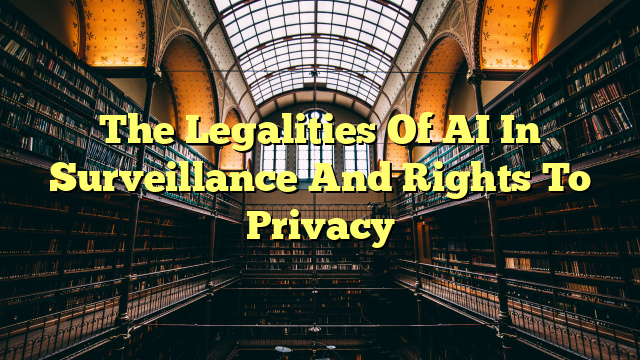Table of Contents
How artificial intelligence might impact privacy rights?
Artificial intelligence (AI) has the potential to greatly impact privacy rights. With the increasing use of AI in surveillance systems, individuals’ privacy can be compromised. AI technology allows for the collection, analysis, and interpretation of vast amounts of data, including personal information. This can lead to the tracking and monitoring of individuals without their knowledge or consent, raising concerns about the erosion of privacy rights.
Are there any laws about artificial intelligence?
Currently, there are limited specific laws that specifically address artificial intelligence. However, existing privacy laws and regulations may apply to the use of AI in surveillance. For example, data protection laws may govern the collection, processing, and storage of personal data by AI systems. Additionally, laws related to surveillance and privacy rights may also be relevant in regulating the use of AI in surveillance activities.
What are the privacy and security concerns of AI?
The use of AI in surveillance raises several privacy and security concerns. One major concern is the potential for mass surveillance and the indiscriminate collection of personal data. AI systems can analyze and interpret data on a large scale, leading to the collection of vast amounts of personal information without individuals’ consent. This can result in the violation of privacy rights and the potential for abuse of personal data.
Another concern is the potential for bias and discrimination in AI algorithms. If AI systems are trained on biased data or programmed with biased algorithms, they may perpetuate and amplify existing biases, leading to discriminatory outcomes. This can have significant implications for privacy and individual rights.
What is the role of AI in security and surveillance?
AI plays a significant role in security and surveillance. AI-powered surveillance systems can analyze video footage, identify objects and individuals, and detect unusual or suspicious behavior. This can enhance security measures and assist law enforcement agencies in preventing and investigating crimes.
However, the use of AI in surveillance also raises concerns about the potential for excessive monitoring and intrusion into individuals’ privacy. Striking the right balance between security and privacy is crucial to ensure that AI is used responsibly and in compliance with legal and ethical standards.


The use of AI in surveillance poses a huge threat to our rights to privacy. Government use of AI is nothing more than an invasion of our personal space and an affront to our civil liberties.